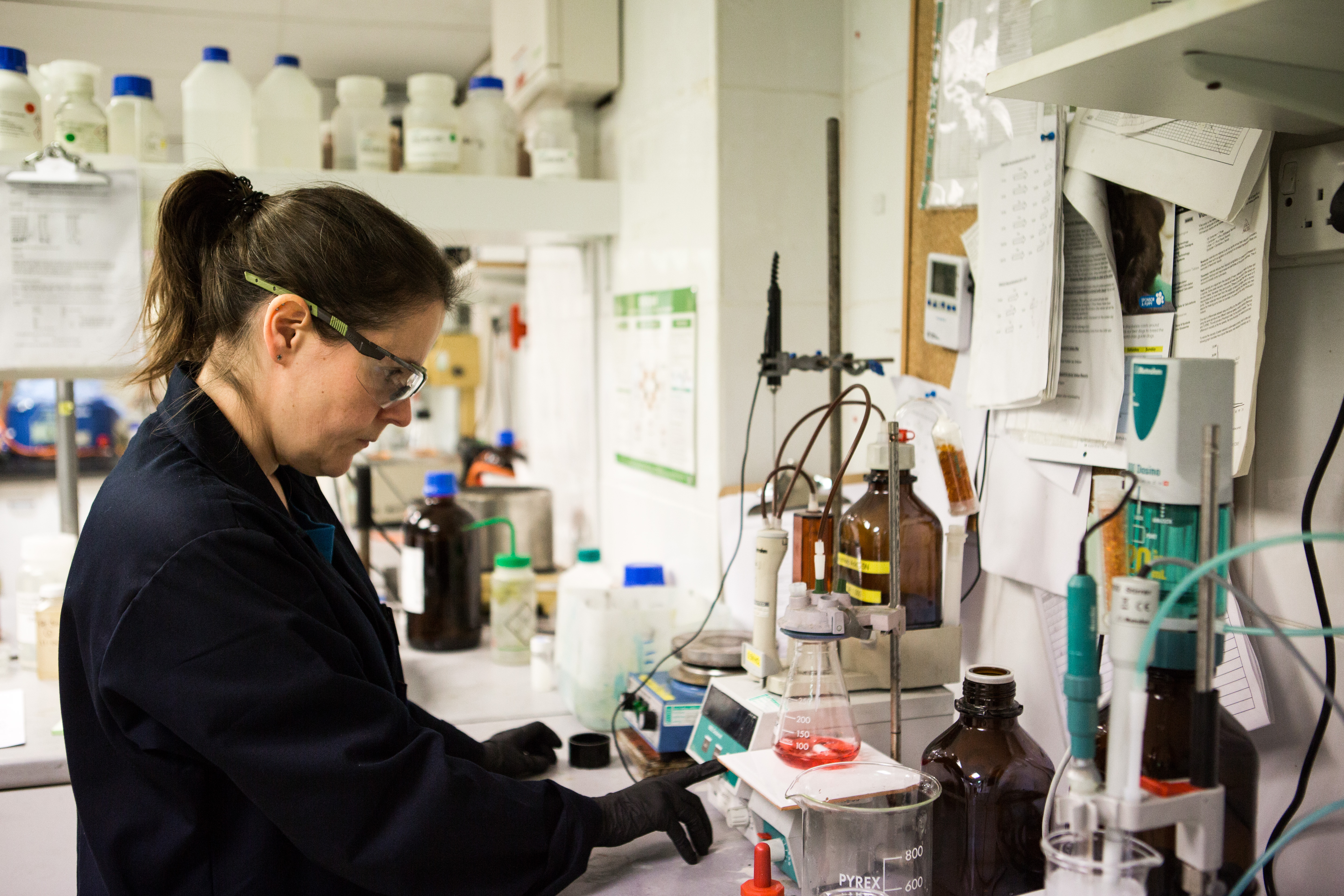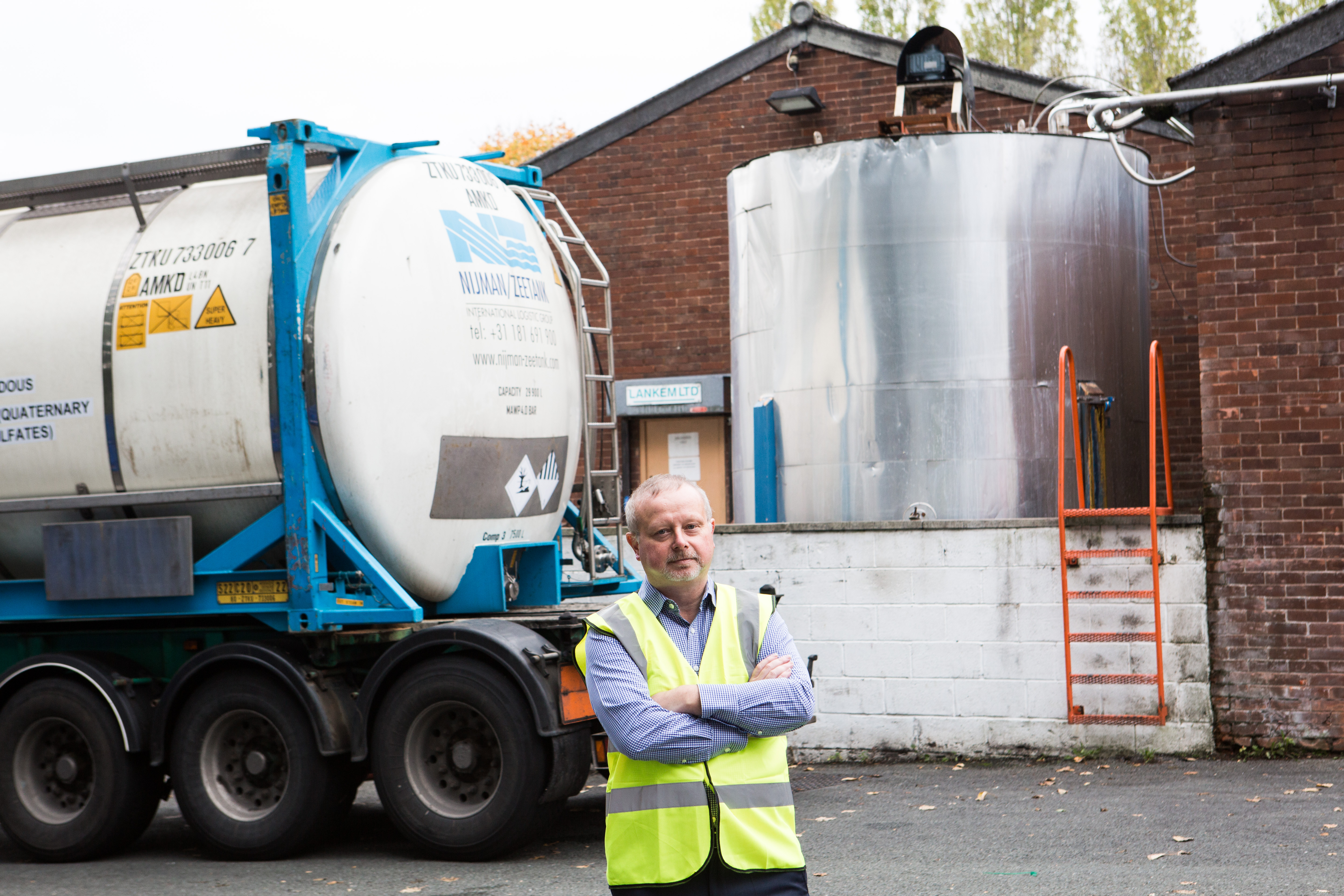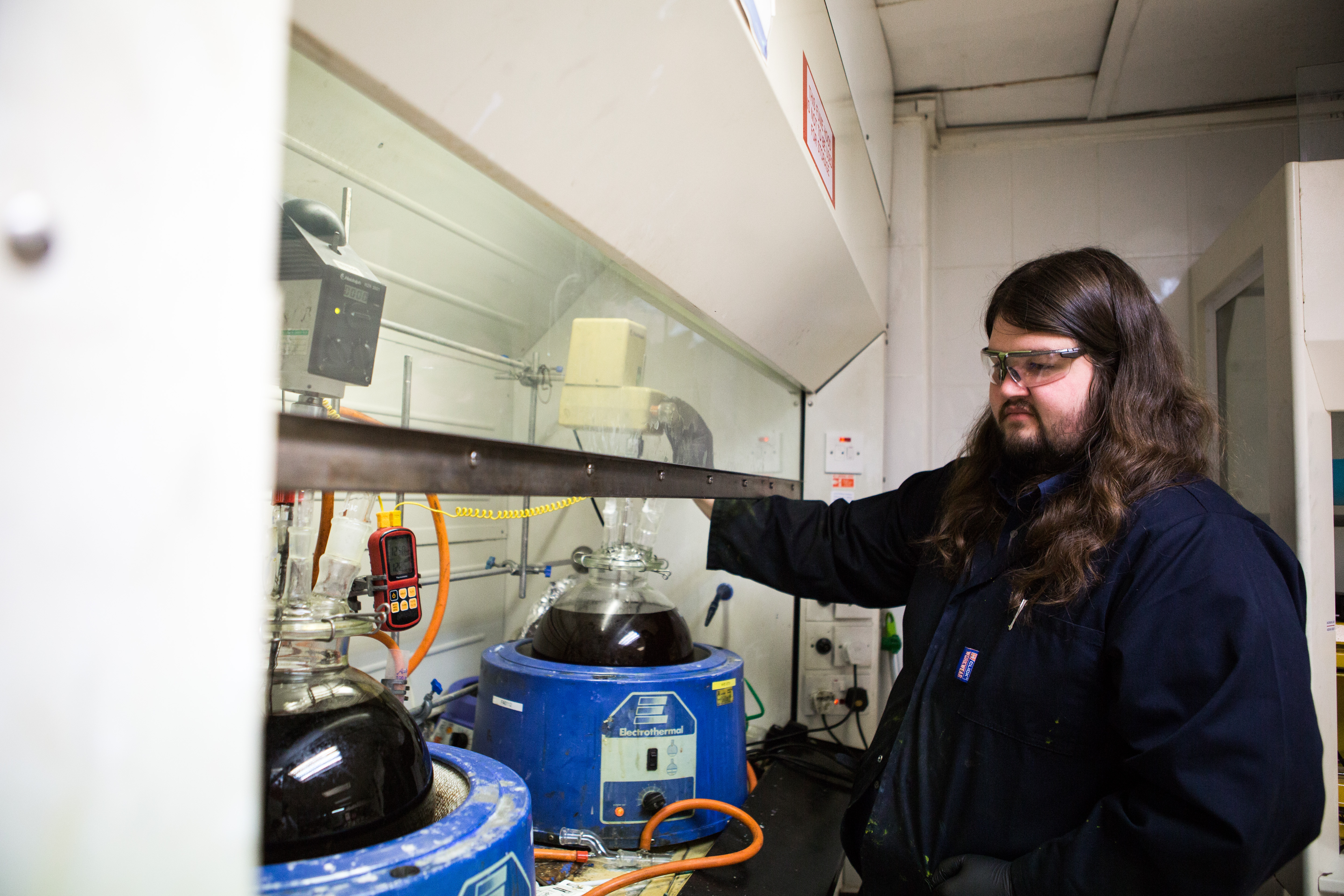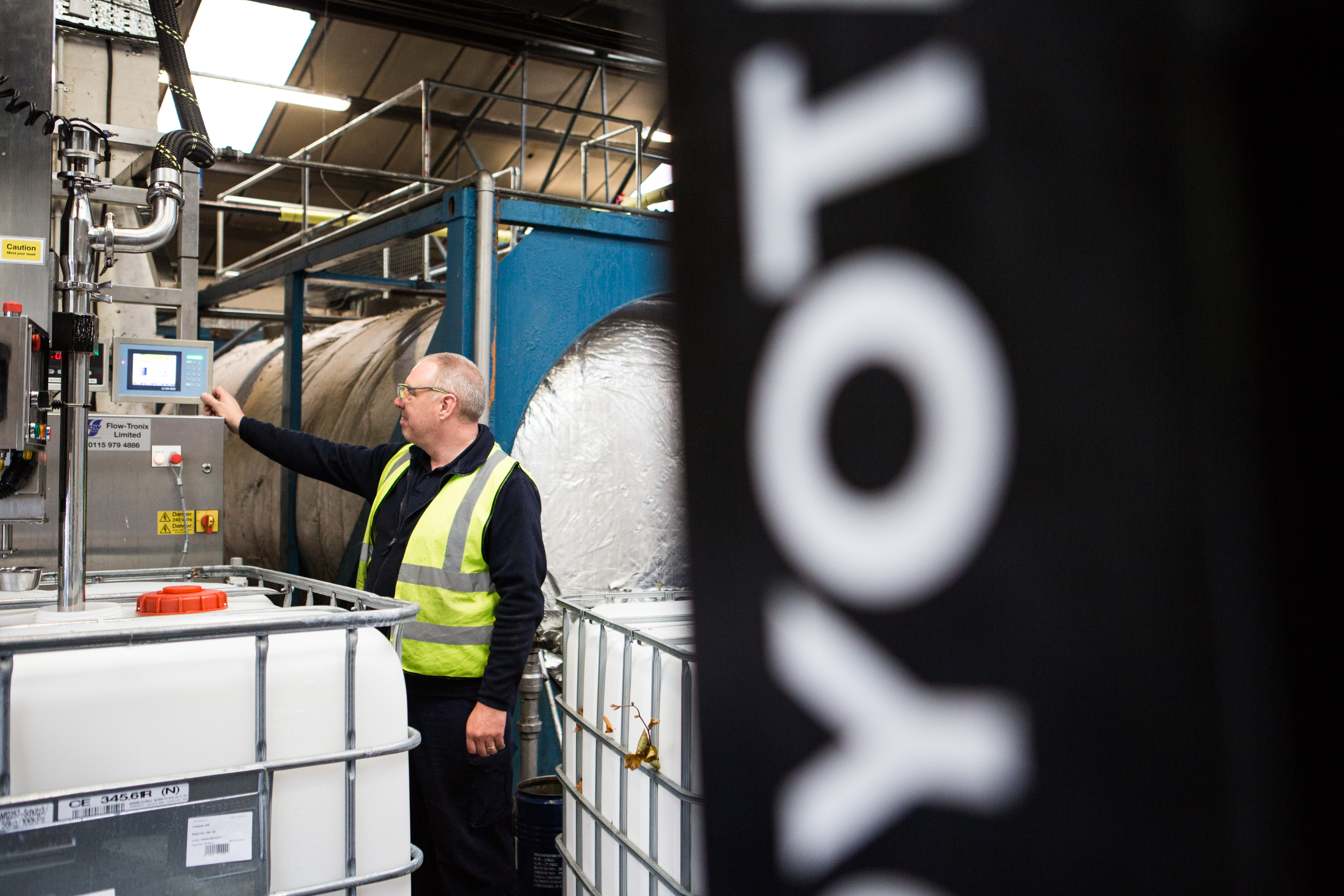Hub helps Lankem to clear the air
The Overview
Support from GC Business Growth Hub’s innovation team helped Ashton-based chemical manufacturers Lankem to test and develop a new fuel additive that reduces dangerous emissions from diesel engines.
Our innovation specialists are here to help identify new opportunities and overcome common issues, accelerating the time it takes to bring new products or services to market.


The Challenge
Lankem specialises in developing and manufacturing surfactants, products which can break down the interface between water and oils and dirt, holding them in suspension and allowing them to be removed. The company works with sectors that include agriculture, industrial cleaning and metal working.
Through its own product development Lankem identified that one of its commodities might affect harmful particulate emissions from diesel combustion. These particulates are small enough to be suspended in the air and when inhaled can cause major respiratory problems. The dangerous effects from diesel emissions are well documented and are a major issue around the world. If the product could be developed and proven, it could have a major impact on both the company and the environment.
“This was a new area for us,” explains sales director Sean Hodgkinson. “We knew we were onto something new, and were confident we had developed a product that could have a major impact on harmful emissions from diesel fuels, but we needed to test it and prove it, and that’s where we needed support.”
The Solution
The Hub’s innovation team has a strong working relationship with all four of the region’s universities, and circulated a draft collaboration project to gauge interest in Lankem’s new additive.
The University of Manchester came forward to offer their expertise and launched a six-month research and testing project which focused on the extent to which harmful particles were reduced, and also the effect the additive had on engine performance.
The research used the University’s testing facilities and Lankem was also given the opportunity to test the product in collaboration with the transport department at Tameside Metropolitan Borough Council, which helped to identify the best route forward with the product.
“As a result of the testing, we now have a much better understanding of the chemistry and impact of the fuel additive,” adds Sean. “It became clear that rather than using it in the automotive industry, it would be more effective used in larger engines, such as those used by ships and tankers. So, through the links we’ve made at the University of Manchester, we’re now working with experts at Southampton University, who have experience of shipping and marine technology.”
The development has helped to safeguard all 21 jobs at Lankem.
And Sean adds: “The project has allowed knowledge and research from the University to be transferred into the skill base of the company, and hopefully it’s just the first of many collaborations.”


It worked for Lankem, it can work for you
We can help you access leading knowledge, facilities and equipment. To find out more, click the button below.